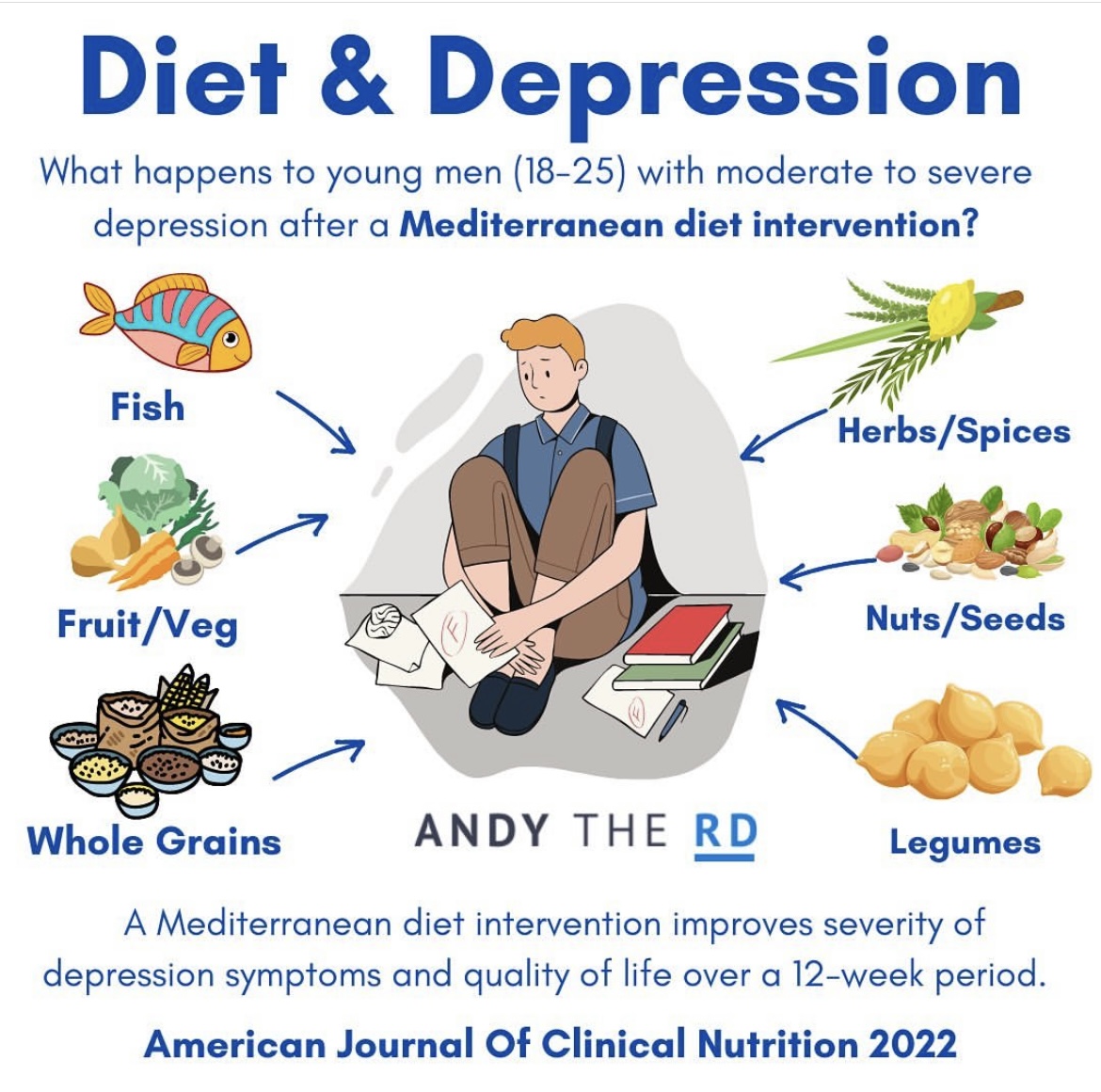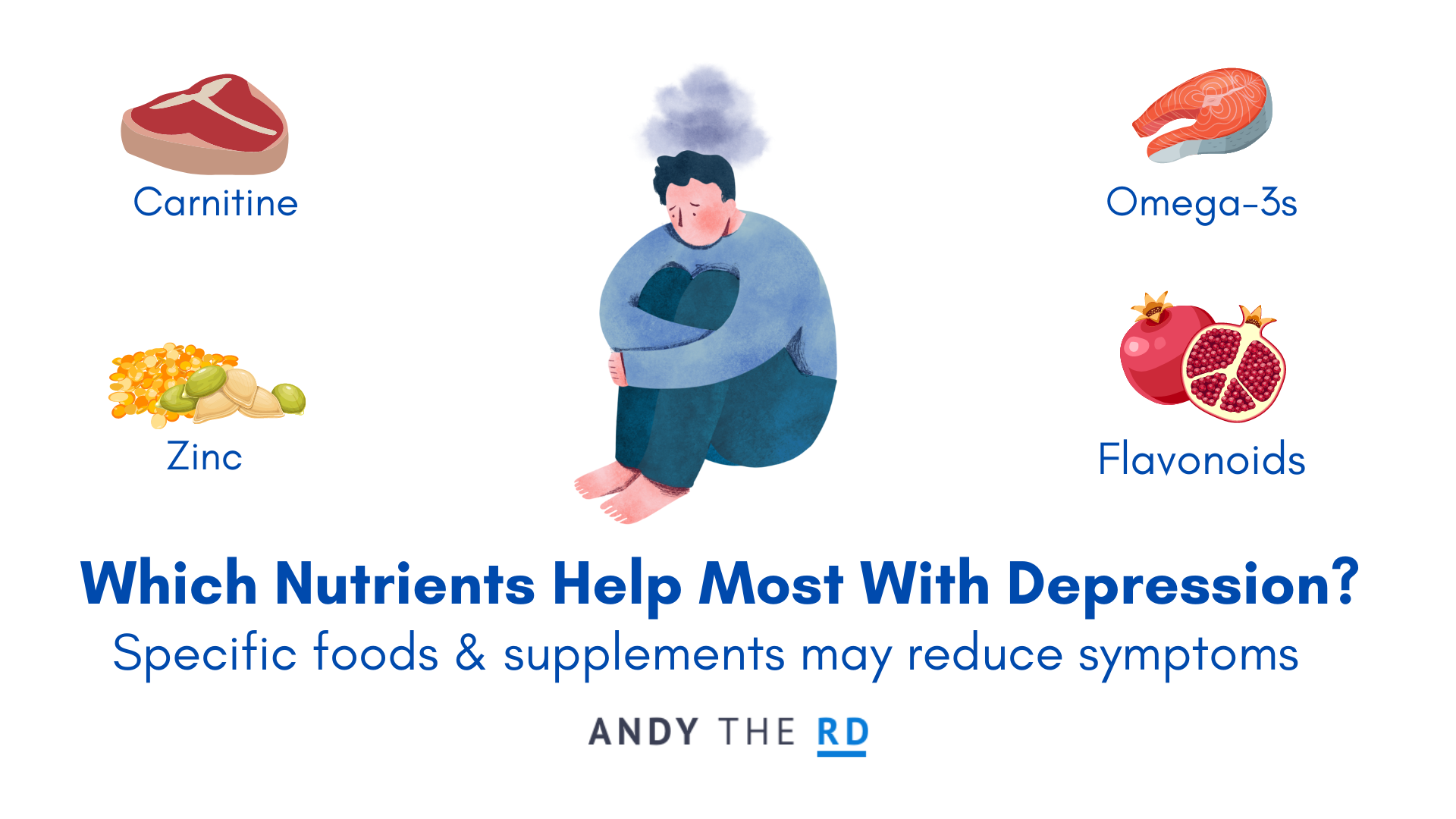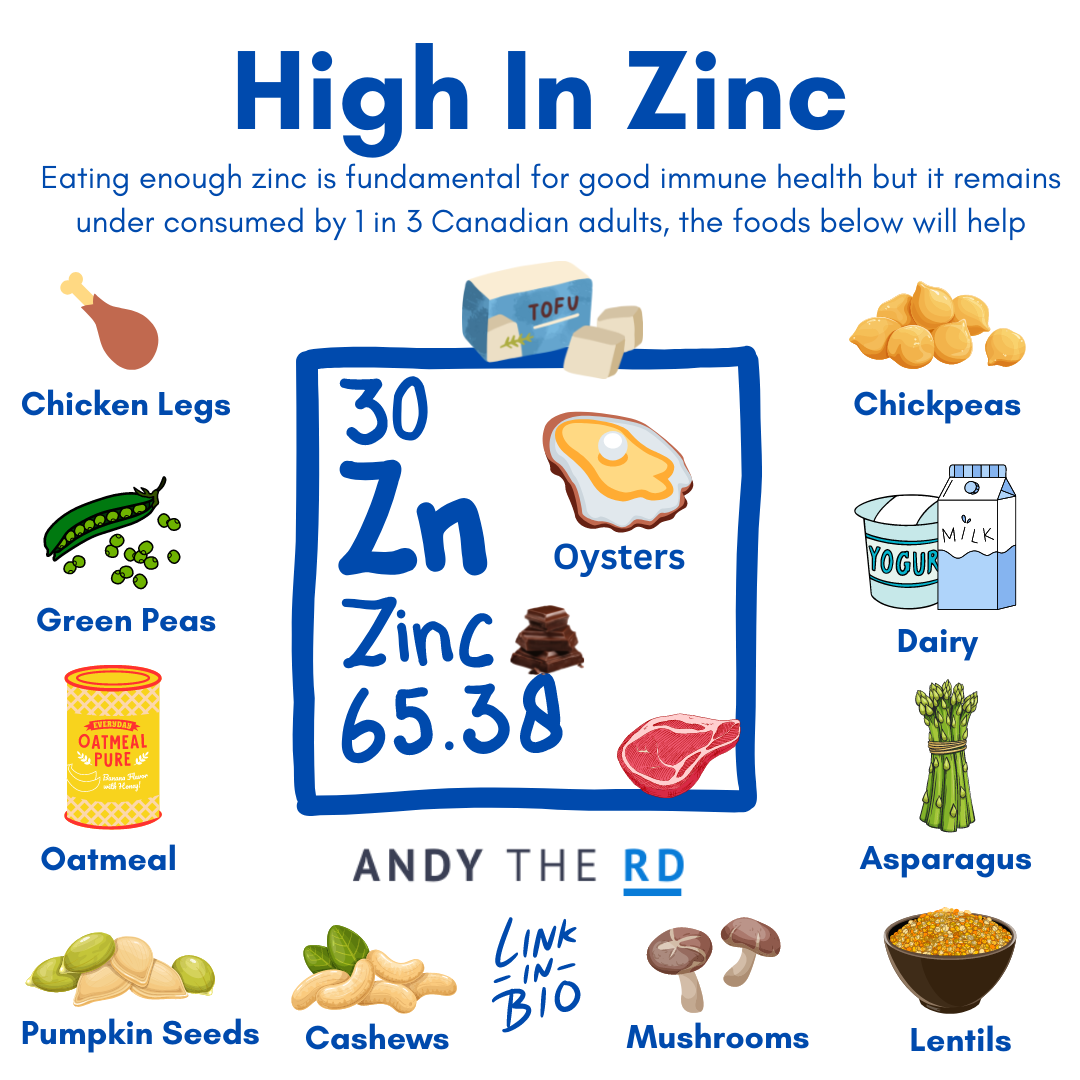The use of antidepressant medication in Canada has increased significantly since the 1990s, with usage rates of over 5% making them among the most frequently prescribed medications in our country.
This speaks, in part, to the mental health challenges we all face.
Challenges only worsened by the recent pandemic, which is estimated to have caused an additional 50 million cases of major depressive disorder globally.
As someone who cares deeply at contributing to improving mental health outcomes in my own small way, these statistics concern me.
In that spirit, I want to take a closer look at a recently published data that explores the best and most current evidence around the role that food and nutrition plays in either preventing depression or reducing its severity.
Let’s get right to it.
Diet & Depression – Key Considerations
Both observational and experimental evidence has demonstrated a role for improved dietary practices to improve depression outcomes, but certain foods/nutrients may play a more prominent role.
Zinc: Observational evidence suggests that individuals with a diet higher in zinc are less likely to be diagnosed with depression.
Zinc supplements appear to have increased in popularity lately due to Zinc’s proposed role in enhanced immune health, and there certainly is potential at the population level for zinc to be under consumed.
Rich-dietary sources of Zinc include tofu, pumpkin seeds, chicken, beef, lentils and oatmeal – among others.
Those who consume meat in low or no quantities should be particularly aware of the plant-based sources of Zinc as it is certainly at risk of under consumption if the appropriate dietary considerations are not taken.
Omega-3 Fatty Acids: The omega-3 fatty acids DHA and EPA, which are found in fatty fish and various omega-3 supplements, have been demonstrated to have the potential to reduce symptoms in those suffering from depression.
There has been extra attention paid to the role that neuroinflammation plays in mental health and thus omega-3s, which have a strong anti-inflammatory effect on the body, may contribute positively in this regard.
Salmon, sardines and trout are among the richest sources of these fatty acids, with supplements sourced from algae a reasonable alternative for vegans/vegetarians.
Current evidence supports the finding that omega-3 PUFAs with EPA ≥ 60% at a dosage of ≤1 g/d would have beneficial effects on depression
Acetyl-L-Carnitine (ALC): Acetyl-L-Carnitine is a naturally occurring compound which plays a role in various aspects of brain metabolism ranging from neurotransmitters to energy use by neurons.
Emerging evidence has suggested that individuals living with depression may have lower circulating levels of ALC and, as a result, this compound has garnered interest as a potential biomarker of depression.
Although more research is required, the current state of the evidence suggests that ALC supplmentation can play a unique role in decreasing depression symptoms.
Endogenous L-carnitine (LC) and its derivative acetyl-L-carnitine (ALC) play antidepressant roles by improving brain energy metabolism, regulating neurotransmitters and neural plasticity. The levels of ALC in people and rodents with depression are significantly reduced.
Beef is by a significant margin the highest natural dietary source of carnitine.
Flavonoids: Flavonoids are a family of antioxidant compounds found in various foods of plant-origin including various types of coffee and tea and various fruits/veggies such as berries, apples, onion, garlic, citrus fruits, pomegranate and KALE – among others.
The potent antiflammatory compound curcumin, the bioactive component of turmeric, is also in this family.
But why does it matter?
Diets rich in flavonoids have have been identified both as being protective against ever getting depression AND at reducing the symptoms of depression in those already diagnosed.
Probiotics: Given the recent surge in scientific emphasis on the role of gut health as it relates to overall well being has meant an increasing body of research relating to the role of these popular supplements for mental health.
A recently published systematic review and meta-analysis of controlled experimental studies has revealed that probiotic supplementation shows promise in improving depressive symptoms, even if more robust research is required before widespread recommendations can be made.
A 2019 study out of Psychiatry Research has suggested that these anti-depressive effects only work in those with diagnosed depression and that multi-strain probiotics may be the most suitable choice for the job.
Need Help Optimizing Your Diet For Improved Mental Health?
Let’s chat about working together – don’t hesitate to reach out.
Want To Read More About Nutrition & Mental Health?
Anxiety is the other highly prevalent mental health disorder, learn more about the role nutrition plays in its management by reading the piece below.
Until next time,
Andy De Santis RD MPH





